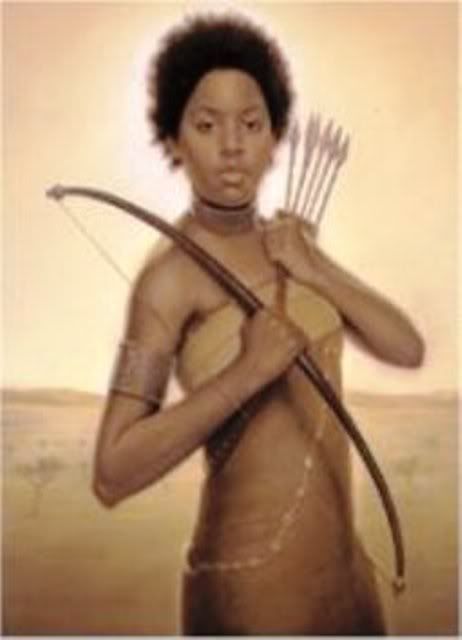Found this article on africaaction.org:
In my line of work there is a well-worn maxim which holds that the media do not tell us what to think; they only tell us what to think about. By that measure, it is hardly surprising that so few Americans ever think about Africa at all. And when they do, the images that come to mind are not of a vast and varied continent – the world’s second largest, home to some 700 million people in 54 different countries spread across an area three times the size of the United States. They are not images of a continent rich in history, culture and natural resources, the cradle of human civilization. Nor does our mainstream media coverage reflect the history of how the western powers systematically underdeveloped Africa for centuries. And rarely is there mention of the scandalous exploitation of Africa’s human and natural resources that persists to this day through an imbalanced and immoral global economic order based on corporate greed and imperial expansionism.Rather, the dominant images of Africa in American mainstream media are of a dark and desolate continent, riven by tribal conflict, beleaguered by pestilence, poverty and disease, a place of fear and futility. They are images of despair and depression, of a lost people languishing in a lost land somewhere beyond the edge of modern civilization.The global economic and political forces that conspire to disadvantage the African people are not unknown to media managers in America. Neither are the considerable accomplishments of many African states in the face of these structural impediments. Yet our media provide scant coverage of these issues, with little or no context to aid our understanding of the story. We are told, for example, that HIV/AIDS is rampant in sub-Saharan Africa but rarely is it explained that the ability of these nations to combat the pandemic through public health and education services is crippled by debilitating and arguably illegitimate debt. Seldom are we told that the ability of African nations to fend for themselves is frustrated by corporate welfare subsidies totaling nearly $1 billion a day to keep western agricultural exports dominant on the world market at the expense of small farmers in developing countries. It goes without saying that for these and other reasons, many African nations are indeed trapped in profound crisis. But instead of comprehensive coverage that examines the full spectrum of cause and effect, we are inundated by one-dimensional images that dwell exclusively on the effect: stark, skeletal images of suffering that feed upon themselves to produce in our minds a misleading stereotype that becomes the face of Africa. Alhaji G. V. Kromah, former assistant professor of International Communication and Media Law at the University of Liberia, summarized the frustration of many when he told students at University of Indiana, Bloomington, that “the problem of Western media reporting on Africa goes beyond professional inadequacies and structural bias. Socio-cultural factors have continued to account significantly for the stereotyping archetype, which has remained a hallmark of western collection and dissemination of information about Africa.”He decried the western reliance on “fatalistic and selectively crude images of Africa to prove to their already misinformed audiences that they have visited the continent or are knowledgeable about its activities.”“Ordinary people, including elders and children, must know that along with the huts, crocodiles and famine, African countries also have skyscrapers, multiple lane roadways and other manifestations of modern life,” Kromah said. “The reciprocal entrapment between the media and their western audiences on perceptions of Africa can only be dissolved if journalists and their institutional owners wake up and hear members of the same audiences expressing knowledge of Africa” beyond the overblown stereotypes and caricatures of African life.
For the continuation visit:
http://www.africaaction.org/resources/page.php?op=read&documentid=723&type=9This article speaks a lot of truth. And it doesn't help either when celebraties go to Africa, return and only re-enforce the negative aspects as already depicted in the media. The continent is just way too big and diverse for that.
 Omu Of Asaba: Have to Start with Granny. She may not be an ancient queen but she's definitely a modern one. Now to the ancients...
Omu Of Asaba: Have to Start with Granny. She may not be an ancient queen but she's definitely a modern one. Now to the ancients... Queen Nefertiti: She was the wife of Akhenaton, the King credited with the concept of one God as practiced in most societies today. She resisted the cultural change emerging in kemet at the time that gave women lower status than men by openly performing religious rituals with her husband and appearing side by side with him to the fury of the dominant religious authorities.
Queen Nefertiti: She was the wife of Akhenaton, the King credited with the concept of one God as practiced in most societies today. She resisted the cultural change emerging in kemet at the time that gave women lower status than men by openly performing religious rituals with her husband and appearing side by side with him to the fury of the dominant religious authorities. Queen Nandi(1778-1826):
Queen Nandi(1778-1826): Queen Tiye (1415-1340BC): The standard of beauty in the ancient world, this Queen held the title of Great Royal Wife to Amenhotep the III. After the end of her husband's reign, she governed Kemet for almost half a century with great efficiency.
Queen Tiye (1415-1340BC): The standard of beauty in the ancient world, this Queen held the title of Great Royal Wife to Amenhotep the III. After the end of her husband's reign, she governed Kemet for almost half a century with great efficiency. Queen Amina (1588-1589):The leading warrior of Zaire, her military skills brought her immense wealth and power. She is widely known as "the woman capable as a man" because of her military skills.
Queen Amina (1588-1589):The leading warrior of Zaire, her military skills brought her immense wealth and power. She is widely known as "the woman capable as a man" because of her military skills.





